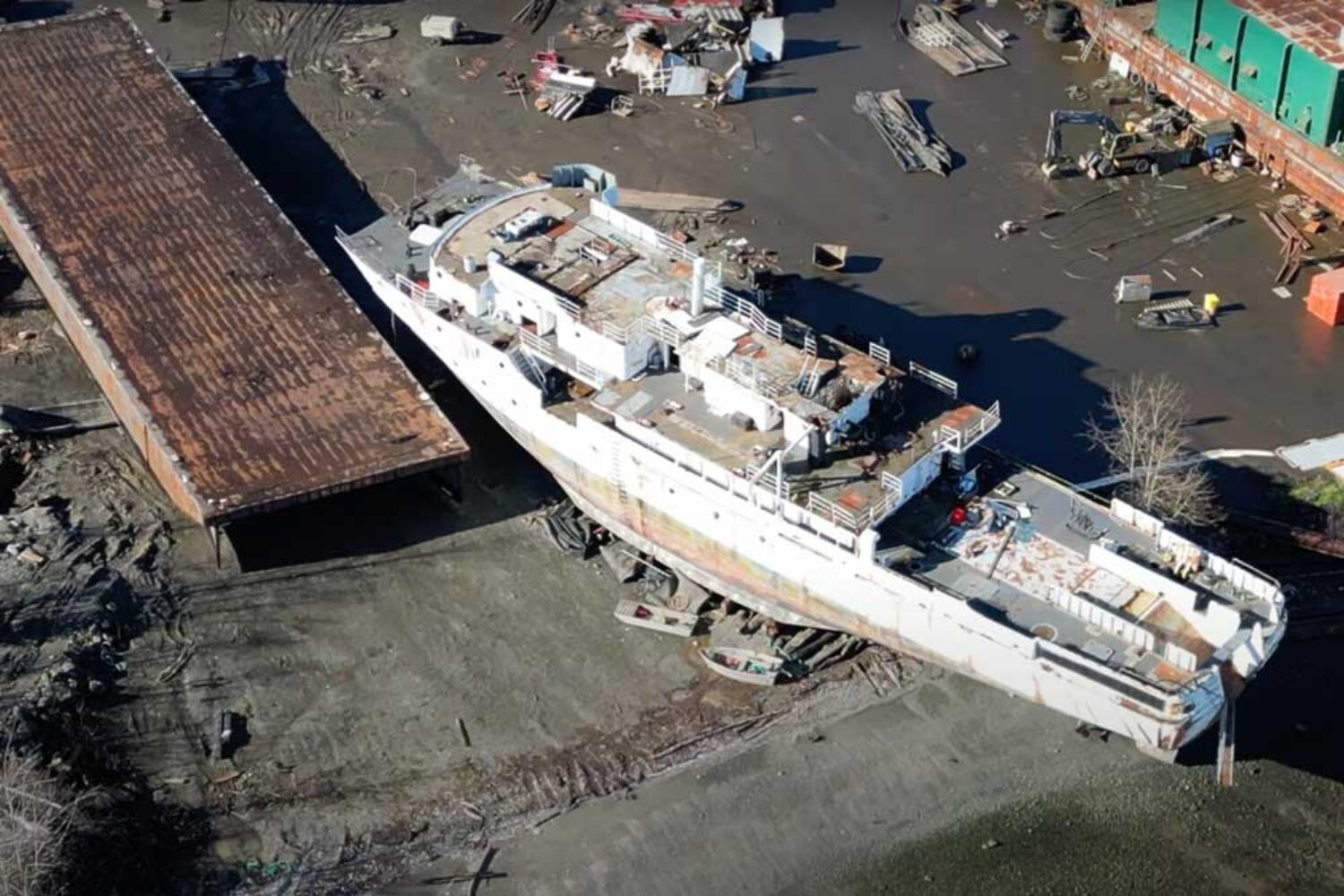The Canadian province of British Columbia has canceled the lease agreement with the company Deep Water Recovery (DWR). Several groups had warned of the environmental consequences.
According to the organization Shipbreaking Platform, DWR had been carrying out ship recycling at the site on Vancouver Island on the west coast of Canada for years without the appropriate permits. Among other things, asbestos and other hazardous materials were released into the environment without any supervision. Local residents, members of the K’ómoks First Nation and environmental groups had campaigned for years for the lease agreement with the company to be terminated.
The Shipbreaking Platform, which campaigns for sustainable, safe ship recycling, welcomed the province’s decision. “Years of unsafe shipbreaking along the coast of Baynes Sound” have effectively ended, the organization said, calling it a “victory for local residents and environmental protection.”
Josie Osborne, MP for the Mid-Island-Pacific Rim constituency, shared on social media how important it is that ship recycling is done legally and safely. “I am very grateful for all the support, letters and meetings with residents, organizations and leaders since 2021,” she said, thanking provincial ministers and staff for their ongoing commitment to the issue. The provincial statement emphasized that DWR had “not demonstrated the required level of regulatory compliance, operational responsibility and environmental stewardship” to justify using Crown Land for shipbreaking. The lease had been revoked to protect the public interest.
“A hard-fought victory”
“This is a hard-fought and well-deserved victory,” said Nicola Mulinaris, Senior Communication and Policy Advisor for the Shipbreaking Platform. “The province’s decision sends a clear signal that dangerous shipbreaking practices will not be tolerated.”
According to the NGO (Non-Government Organization), this decision is a “precedent in the global movement for responsible ship recycling”. However, there is still much to be done: “Wrecks and industrial waste continue to litter the coast, and the clean-up work must be expedited quickly under government supervision. The platform supports community members in their demand for transparent and comprehensive clean-up measures.”
Laws in line with IMO and EU standards required
The case also highlights Canada’s “glaring regulatory gap in ship recycling”, it continues. Without federal legislation, it is still possible to dismantle ships unhindered and unregulated. The NGO therefore called on the government to enact binding laws that meet international and EU standards.
A large proportion of global ship recycling takes place in Asia, particularly in shipbreaking yards in India, Bangladesh, China and Pakistan. The work is considered to be one of the most dangerous activities of all. The Hong Kong Convention, which was adopted in 2009 and has been in force since June 2025, aims to improve working conditions and environmental protection at recycling yards. Industry experts expect the new rules to lead to a significant increase in ship scrapping in the coming years. Outside of South Asia, Turkey is an important recycling location, particularly for offshore ships. In Germany, the first recycling company, EWD Benli in Emden, recently started operations.













